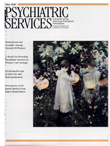Columbia University's fellowship in public psychiatry
Abstract
In 1981 the fellowship in public psychiatry was established at New York State Psychiatric Institute and Columbia University College of Physicians and Surgeons to provide subspecialty training for psychiatrists who plan careers in the public sector. Ten one-year postresidency fellowships are awarded annually. The fellowship consists of supervised work and didactic experiences focused on the clinical modalities most effective in public mental health services and the managerial skills that the psychiatrist must possess to make those services work well. Fellows work three days a week at collaborating public-sector agencies throughout the New York metropolitan area. The curriculum includes an academic seminar, which gives fellows an introductory overview of major topics in public psychiatry; an organizational practicum, which is an exercise in management principles and practices; an evaluation practicum, which addresses the theory and practice of program evaluation; and an applied seminar, organized as a cycle of clinical, administrative, fiscal, and evaluation presentations in which each fellow applies the concepts learned in the other seminars to his or her field placement work. Of the 75 fellows who have graduated from the program, only six have chosen to leave the public arena. Nearly all work full time in the public sector, where more than half hold management positions. More than three-fourths hold academic appointments at medical schools in the area in which they are working as public psychiatrists.
Access content
To read the fulltext, please use one of the options below to sign in or purchase access.- Personal login
- Institutional Login
- Sign in via OpenAthens
- Register for access
-
Please login/register if you wish to pair your device and check access availability.
Not a subscriber?
PsychiatryOnline subscription options offer access to the DSM-5 library, books, journals, CME, and patient resources. This all-in-one virtual library provides psychiatrists and mental health professionals with key resources for diagnosis, treatment, research, and professional development.
Need more help? PsychiatryOnline Customer Service may be reached by emailing [email protected] or by calling 800-368-5777 (in the U.S.) or 703-907-7322 (outside the U.S.).



